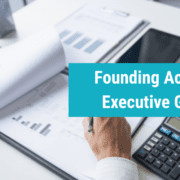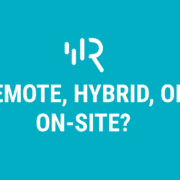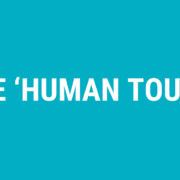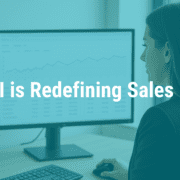Personal Branding Roadmap Template For 2020 Sales Job Seekers
The importance of personal branding for career development is more vital now than ever for career salespeople thinking long-term. Your online reputation is now your resume and the key to future career growth.
Having a personal brand gives you tremendous leverage when it comes to landing great career opportunities. For example, you might lack the job experience requirements for a role you really want, but having a strong personal brand may be able to compensate for that.
5-10 years ago, finding a new job worked heavily in the employers’ favor. Fast-forward 5-10 years later and digital transformation has shifted the advantage to the candidate. The MRI Network stated:
“86% of recruiters and 62% of employers felt the 2016 labor market was candidate-driven.”
Take a look at Tim Ferris or Gary Vaynerchuk as some key self-branding examples. Of course, they are at the extreme end of the spectrum, but they are the poster children for what you can achieve building a personal brand at scale.
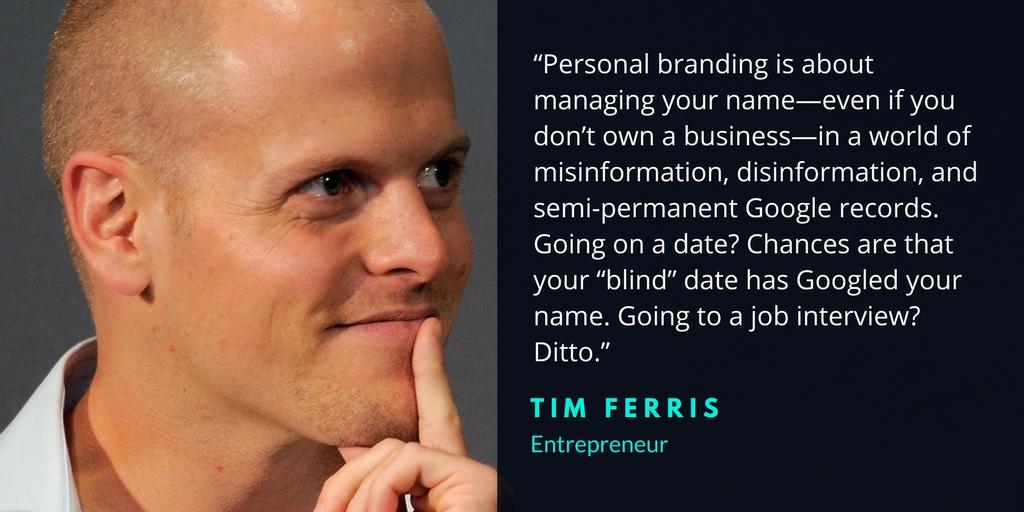
Before diving into actionable personal branding techniques for job seekers (especially those in sales), it’s important to point out a hard reality. It isn’t going to be easy.
Building a personal brand is going to be a huge time commitment and will show little return in the short-term, but the long-term gains for the future of your career are limitless if you put in the blood, sweat, and tears in the beginning.
To get started you need to start asking yourself the questions below and write them down inside a google doc sheet or piece of paper.
Answer these questions to help you build out your personal branding roadmap in 2018:
- What is your “value” differentiator?
- Who is your target audience?
- What channels does your target audience live?
- What outcome are you trying to achieve short-term?
- What outcome are you trying to achieve long-term?
- What is your motive for building a personal brand?
- What keywords do you want to be found for?
- What is your content strategy?
- What KPIs are you going to commit to (daily/weekly)?
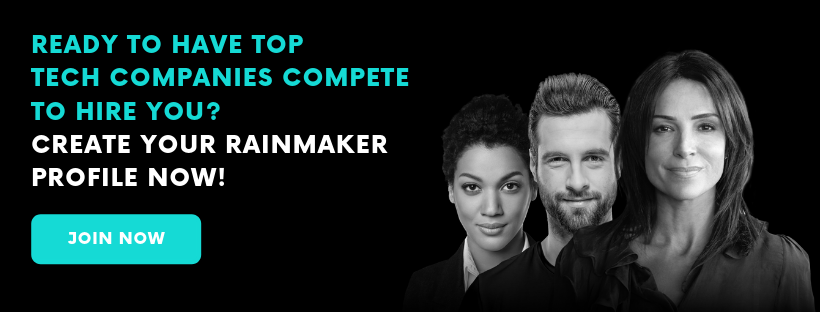
1 – What Is Your Value Differentiator?
The importance of personal branding for career development all starts with understanding your “value” differentiator.
This will sound like a daunting task in the beginning. The easiest way to understand this is by understanding your strengths and weaknesses.
What makes you standout amongst the noise as a candidate every employer would want to hire?
What makes you the expert in your field?
This is the key to getting started with your personal branding plan.
Determine Your Strengths/Weaknesses:
Take out a piece of paper and start writing down your strengths on one side of the page and weaknesses on the other. What wisdom do you have in your field that others don’t? Where do you lack wisdom?
If you get stuck, don’t hesitate to reach out to your co-workers and managers from your past and current jobs.
Really challenge yourself to understand your weaknesses because these will show you areas that need improvement.
You should consistently thrive to optimize your value differentiator.
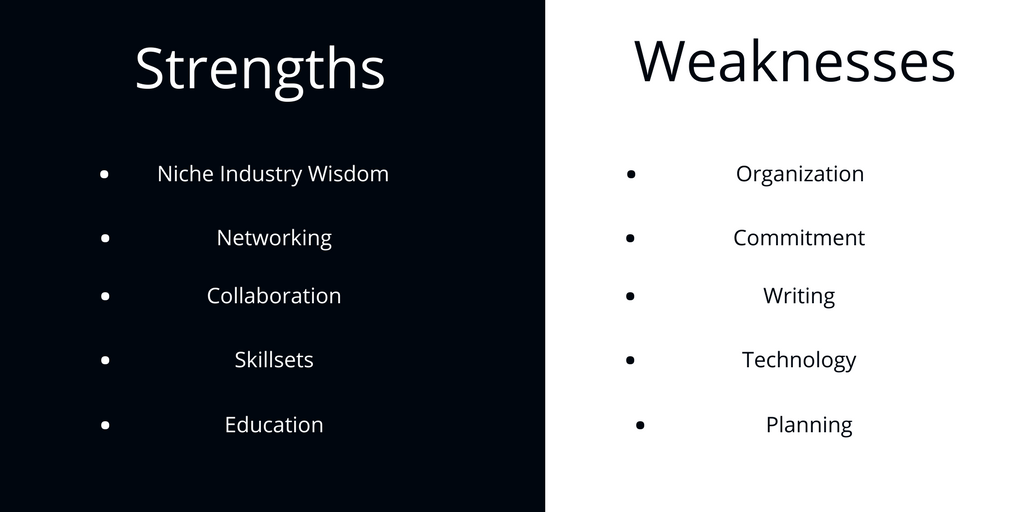
2 – Who Is Your Target Audience?
To capture the right employer’s attention, it’s imperative that you understand your personal brand target persona. This is comparable to understanding personas in sales and marketing.
Make a list of all the influencers, employers, or decision makers you are trying to start conversation with or get attention from. This should help you build out your target audience.
Industry: Thinking long-term about your career what industry do you want to work in for the rest of your career? Narrow this down to your niche as much as possible.
Seniority Level: Do you speak to executives, mid-management, or practitioners?
Job Function: Do you speak to marketing, sales, IT, or accounting?
Industry Influencers: Who are the experts in your field?
3 – Which Channels Actually Matter To Your Target Audience?
This part should be easy. The importance of personal branding for career development starts with not only understanding who your audience is, but even more important, is where do they live?
For most B2B professionals, LinkedIn is the best place to build your personal brand.
In most cases, your target audience will be engaged on multiple channels. Pick two channels (three at most), in the beginning, and really focus on those as you are getting started.
- Quora
- Snapchat
4 – What Outcomes Are You Trying to Achieve Short-Term?
In the beginning, when building out your personal branding plan, it’s vital to understand what outcome you are trying to achieve.
What are your short-term goals? These are outcomes you can achieve as little wins in a short-period of time. Most of these will be around audience growth and engagement metrics.
Some recommended short term goals to help you get started:
- Grow targeted following
- Create 1-1 conversations
- Content creation
- Content curation
- Profile views
- Connections
5 – What Outcomes Are You Trying to Achieve Long-Term?
Short-term wins over time will help you get to your long-term goals. Your goal here is to turn your short-term wins into habits that help you get to your long-term goals faster.
Long-term goals should incorporate building real expertise in your field that captures the attention from your employers based on association and wisdom.
Some recommended long term goals to help you get started:
- Inbound 1-1 conversations with target employers/recruiters
- Increase in number of qualified interviews
- More opportunity in higher positions
- More qualified connections with industry influencers
- Interviewed on top industry podcasts
- Guest posts on top industry blogs
Link to this podcast → https://www.youtube.com/watch?v=cKeolScvBdI
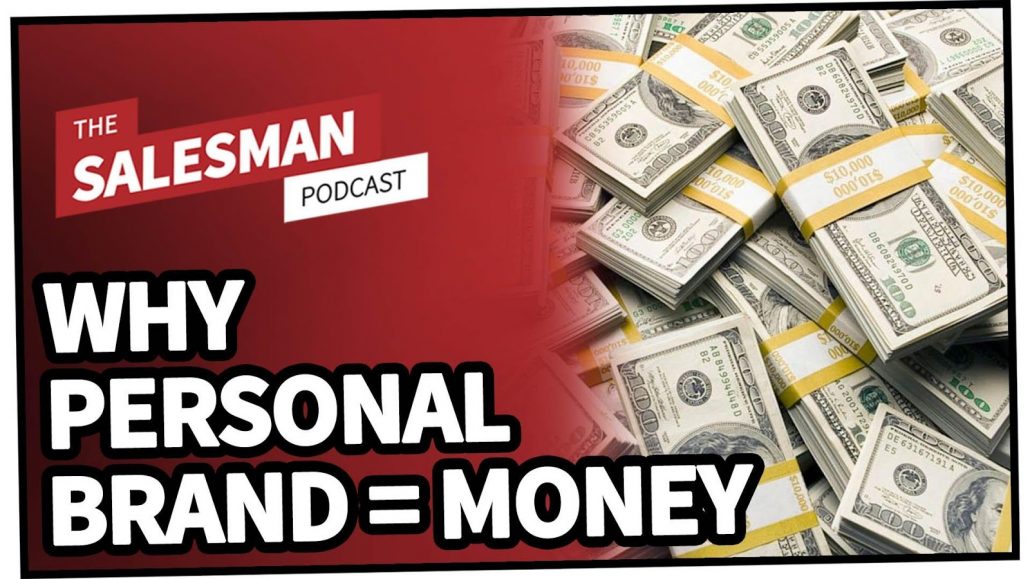
6 – What’s Your Motivation For Building A Personal Brand In The First Place?
This one should be obvious, but it must be part of building out your plan, so you don’t lose track of why you are investing the time and energy.
For example, musicians build a personal brand so they can get booked for more shows and gain more fans.
For B2B professionals, you may be looking for thought leadership opportunities such as speaking at a conference.
This exercise might also help steer you AWAY from building a personal brand (and that’s okay).
Ask yourself these questions:
- Why am I building a personal brand?
- Who is going to benefit from my personal brand?
- Am I doing this to give more than I receive (or vice versa)?
- Will I be focused on building strong relationships?
If the answer to these questions seem to be more “me” focused than “we” focused, it might not be worth making the commitment.
7 – Which Keywords Do You Want To “Rank” For ?
Understanding keywords that you want to be found for will help drive the long-term success of your personal brand. Keywords play a major role when setting up and optimizing your social profiles (or website) to be found by employers in the short-term and long-term.
Using the “skills” section inside your LinkedIn profile will help you determine which industry keywords employer’s and recruiters search the most. This should be a pretty simple process, but you can also search industry hashtags using hastagify.me to get more granular in your search.
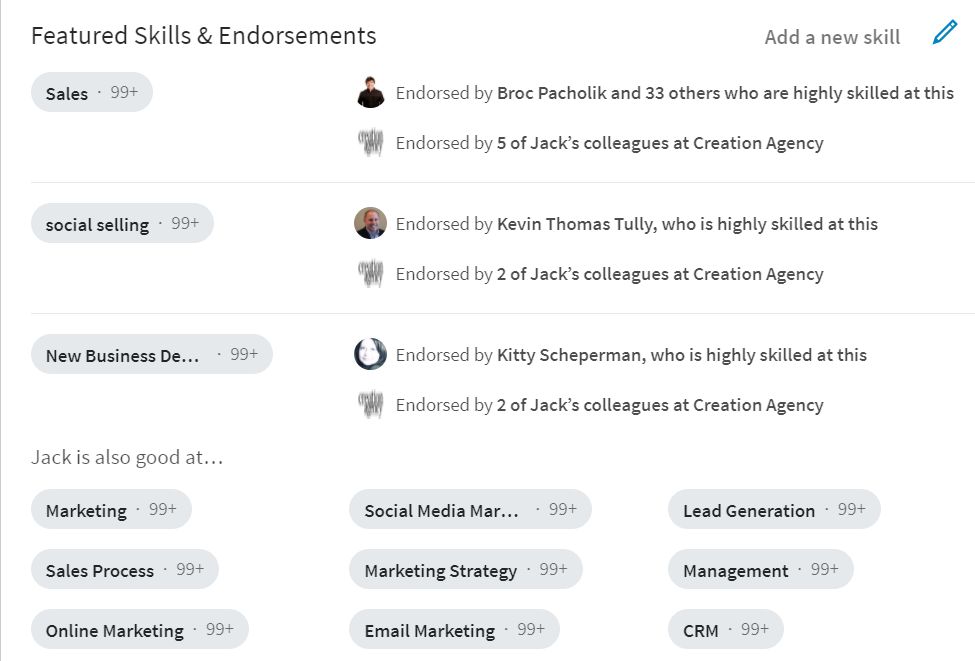
8 – What Is Your Content Strategy?
Want a little known secret to building your personal brand, FAST?
Content. Simple as that.
Content is the key driver when building a personal branding plan that captures attention at scale. The key here is to be super strategic with the content you curate, create, and share.
Aligning your “value” differentiator with your content is key to capture your target audience’s attention. Your keyword strategy will need to be integrated heavily into this strategy.
Focus on these two key areas:
Content Curation – Sharing other people’s content is vital (especially in the beginning) to driving more targeted connections, conversation, and attention. Who are the industry influencers in your space? Who are the key employers you are trying to get in touch with? Use their content to drive the conversation using a value vs ask approach.
Content Creation – Creating original content should be a priority. It’s the only way you will gain the reputation as the expert in your field. This should be a mix of video and blog content. Using LinkedIn publisher should be a key area of focus. This builds your credibility inside your profile and allows recruiters to understand your “value” differentiator. Eventually, building your own website will need to happen as well.
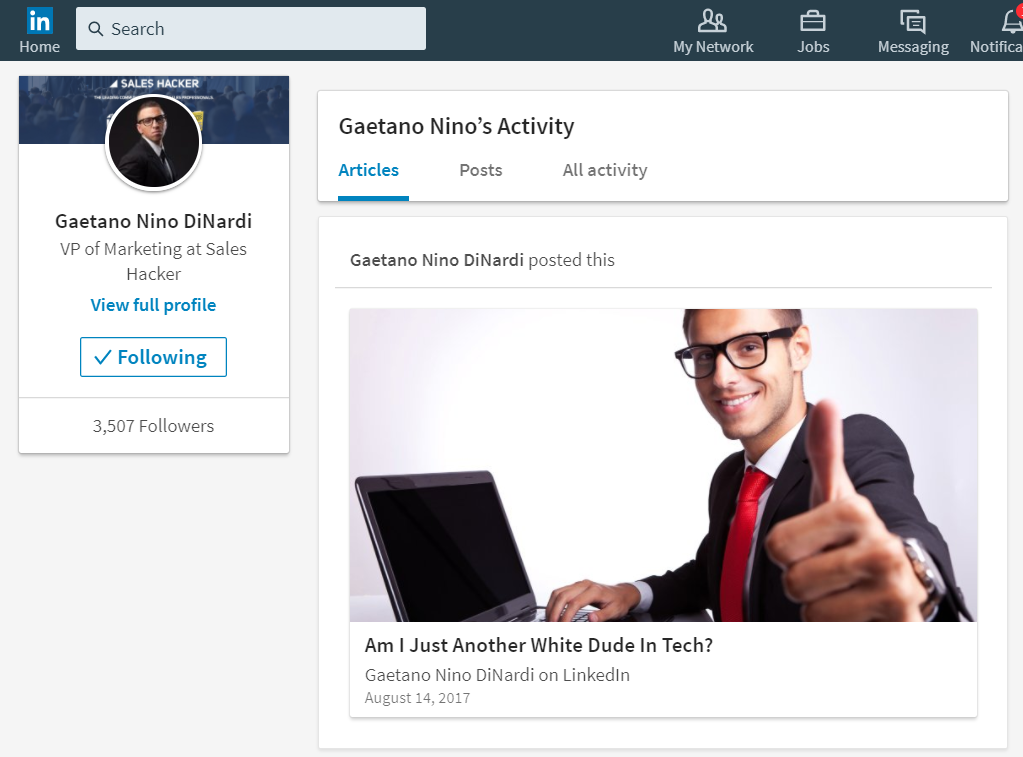
9 – Which KPIs Will You Commit To (daily/weekly/monthly)?
Consistency is the key to driving short-term and long-term success.
- How many times a week are you going to curate content?
- How many times a week are you going to create content?
- How many times are you going to post on dedicated channels daily?
- How many times will you engage daily? Weekly? Monthly?
Build out a posting strategy that holds you accountable and turns your activity into a habit. Using social publishing tools like Sprout Social, Buffer, or Hootsuite will help you automate the process to become more efficient.
NOTE: In the beginning, stay away from automation as much as possible. Really focus on the 1-1 conversation to build relationships that matter.
Putting Your Personal Branding Roadmap into Motion
This all might sound like its going to be a lot of work (and it will be), but start focusing on taking baby steps in the process.
After you start seeing short-term wins it will help you pick up momentum.
Think about the next 10-20 years of your career.
Visualize the opportunities that will come your way if you put in the time now, so you can reap the career rewards later!



